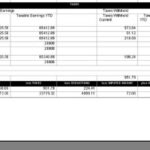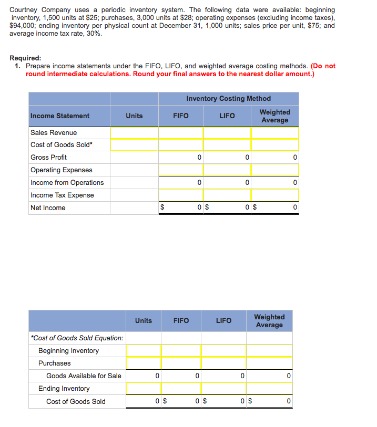Content

It’s a key concept in financial accounting as it affects your company’s financial statements–providing a clear picture of its financial health to investors and stakeholders. If this is the case, a company will need to allocate the transaction price to each obligation. A magazine publisher, for example, that sells a $120 annual subscription will only recognize $10 of revenue every month. If the company went out of business, it would have to return a pro-rated portion of the annual subscription price to the customer since it had not yet delivered the product.
Expenses incurred in the same period in which revenues are earned are also accrued for with a journal entry. Just like revenues, the recording of the expense is unrelated to the payment of cash. An expense account is debited and a cash or liability account is credited. Often, a business will spend cash on producing their goods before it is sold or will receive cash for good sit has not yet delivered. Without the matching principle and the recognition rules, a business would be forced to record revenues and expenses when it received or paid cash. This could distort a business’s income statement and make it look like they were doing much better or much worse than is actually the case.
Revenue Recognition Criteria
This method usually applies to service-based businesses, like consultancy companies. Revenue is recorded after the product delivery but before the payment is received. For example, a service delivered in June is recorded on June financial statements, even if the customer pays for it in August. Under the accrual method, the revenue recognition principle requires that When Should A Company Recognize Revenues On Its Books? revenue is always reported in the period that it is earned, not necessarily when cash is received. Under the cash method of accounting, revenue is recognized when it is received. Revenue recognition is agenerally accepted accounting principle that determines the process and timing by which revenue is recorded and recognized as an item in the financial statements.
- They must be realized or realizable, which means the goods or services have been exchanged for cash or claims of cash , or realizable if the transaction involves an asset that can be converted to a known amount of cash.
- The revenue recognition principle using accrual accounting requires that revenues are recognized when realized and earned–not when cash is received.
- The seasonality of demand drives many businesses and one of the benefits of having adopted the accrual method of accounting is that it requires revenue and expenses to be reported in the period they were earned or incurred.
- In this case, it is going to record 1/12 of the annual expense as a monthly period cost.
- The purpose of refining the prior revenue policies was to improve the comparability among the financial statements of different companies and create a more consistent, standardized financial reporting process across all industries.
In the third month, the digital ads are done and delivered, so the agency has fulfilled its performance obligations. Again, this can be recognized even if the startup hasn’t technically paid them yet. The performance obligations have been fulfilled, meaning the revenue can be recognized. Because the startup process has been completed, that revenue can be recognized as earned. However, since the monthly service has not yet been delivered, the accounting ledger must reflect that.
GAAP Revenue Recognition Principles
Second, the timing of revenue recognition can impact the overall financial picture of a business. For example, if a business recognizes all of its revenue at the end of the year, its financial statements will look very different than if it recognizes revenue throughout the year as it is earned. Revenue earned from business operations is recorded in the income statement. Revenue recognition for service-based work like consulting happens at the time of consulting even if the client pays at a later time.

If the shipping terms are FOB shipping point, ownership passes to the buyer when the goods leave the seller’s shipping dock, thus the sale of the goods is complete and the seller can recognize the earned revenue. Examples of costs that are expensed immediately or when used up include administrative costs, R&D, and prepaid service contracts over multiple accounting periods. Imagine a customer who pays upfront for a year’s worth of lawn-care service. https://kelleysbookkeeping.com/ Since the company hasn’t yet fulfilled its obligation to provide the service, it can’t record that money as revenue. It still records the receipt of cash, but it puts the money on its books as a liability called “unearned revenue” or “deferred revenue.” As it provides the contracted service, it records revenue and reduces the amount of the liability. When the obligation has been fulfilled, the liability will have been reduced to zero.
Revenue Recognition Before and After Delivery
Additionally, a company that sells a product with an unconditional return policy cannot book the sale until the window has expired. To book revenue with this method, the selling company must be able to reasonably estimate the probability that it will be paid for the order. Depending on which method is chosen, the financial statements may look drastically different, even though the financial condition of the company is the same. If your business collects payments from customers upfront and your investors or lenders want your financial records to be in line with GAAP, it pays to read up on ASC 606. For example, a construction company might be under contract to build 20 miles of railway line for $1m. The easiest way to explain when you should recognize revenue in your own business is by seeing it in action, so let’s look at a few revenue recognition examples.
When should revenue be recognized in the books of accounts?
Essentially, the revenue recognition principle means that companies' revenues are recognized when the service or product is considered delivered to the customer — not when the cash is received. Determining what constitutes a transaction can require more time and analysis than one might expect.
It also makes changes to the disclosure requirements for companies—what type of information they provide investors. Gains or losses from the sale of assets should be reported as “other general expenses” pursuant to Regulation S-X, Article 5-03. The skills or equipment required to complete the remaining activity are specialized or are not readily available in the marketplace. Acceptance provisions that grant a right of return or exchange on the basis of subjective matters. Acceptance provisions in arrangements that purport to be for trial or evaluation purposes.
